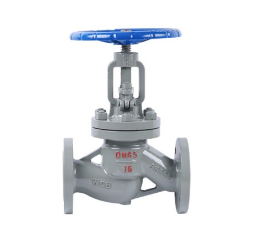a needle valve
Understanding Needle Valves A Comprehensive Overview
Needle valves are essential components in various fluid control systems, primarily used to regulate the flow of liquids and gases with precision. These valves are characterized by their slender, tapered design, which allows for a fine adjustment of the flow rate. Unlike standard valves that can only provide an open or closed position, needle valves offer a more nuanced control due to their unique construction, making them invaluable in specific applications.
Understanding Needle Valves A Comprehensive Overview
The operation of a needle valve is straightforward but requires some understanding to ensure optimal performance. Typically, the flow is initiated by turning the handwheel or knob clockwise or counterclockwise, which adjusts the position of the needle in relation to the seat. The finer the threads on the valve stem, the more sensitive the adjustment, enabling operators to achieve specific flow rates. This capability is crucial in systems that require exact measurements, such as in chemical injection or pneumatic controls.
a needle valve

Another significant advantage of needle valves is their ability to minimize turbulence and pressure drops compared to other valve types like gate or globe valves. This feature is particularly important in applications where maintaining a steady flow rate is critical. The design of needle valves helps in preventing cavitation and erosion, which can lead to system failures or reduced performance over time.
Needle valves also play a vital role in various industries, including oil and gas, pharmaceuticals, and water supply systems. In the oil and gas sector, they are often used to control the flow of liquids or gases under high pressure, ensuring safety and efficiency in extraction and transportation processes. In pharmaceuticals, where precise dosages are crucial, needle valves help in the accurate delivery of active ingredients.
Maintenance of needle valves is relatively simple. Regular inspections and cleaning are necessary to prevent blockages and ensure smooth operation. Over time, seals and seats may wear out, requiring replacement to maintain performance standards. Proper installation and alignment are also critical to prevent leaks and ensure efficient operation.
In summary, needle valves are indispensable tools for precise fluid control. Their unique design and operational capabilities allow for fine adjustments in flow rates, making them ideal for various industrial applications. As technology progresses, the role of needle valves will likely expand, further enhancing their importance in modern engineering and fluid management systems.
-
The Key to Fluid Control: Exploring the Advantages of Ball Valves in Industrial SystemsNewsJul.09,2025
-
The Versatile World of 1, 2, and 3 Piece Ball ValvesNewsJul.09,2025
-
Stainless Steel Ball Valves: The Ideal Choice for Efficient Flow ControlNewsJul.09,2025
-
Optimizing Fluid Control with Ball Float ValvesNewsJul.09,2025
-
Manual Gate Valves: Essential for Control and EfficiencyNewsJul.09,2025
-
Everything You Need to Know About Butterfly ValvesNewsJul.09,2025
-
The Versatility of Wafer Type Butterfly ValvesNewsJul.08,2025




